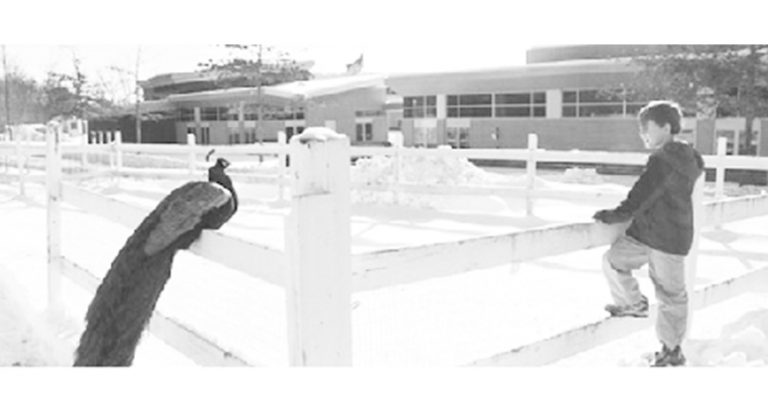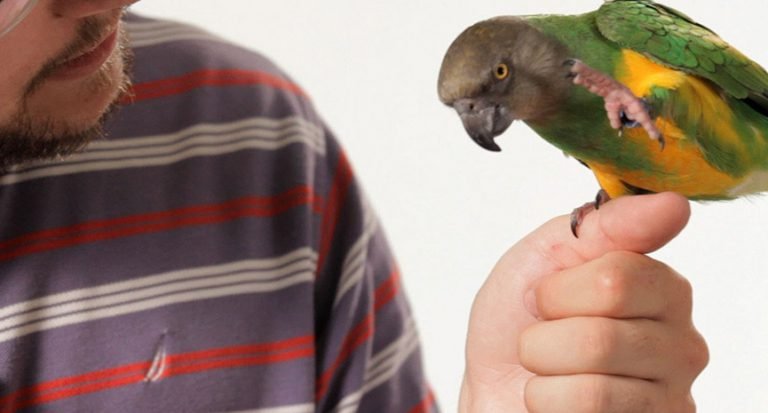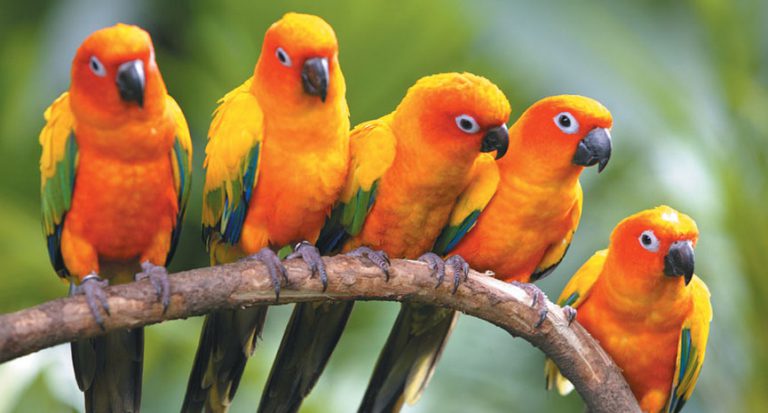Can’t board your bird, or how about the fish
and of course there is the chicken…
When a bird owner is planning a trip out of town, the first person to call is a bird sitter or boarding facility. Pet shops, bird stores and veterinary hospitals often have accommodations for boarding, but there’s some footwork to be done first. Plan ahead, especially when you’ll be away during school vacations or holidays. Pet sitters and boarding facilities are often fully booked during these periods.
Visit any boarding facility you are planning to use. If it’s in a store, is it segregated from store birds and the general public? Does it look clean? Does the facility have its own boarding cages or can you bring your bird in its own cage, size permitting? What provisions are made for holidays? How frequently are birds checked on? Is store personnel qualified to care for birds? Will they recognize signs of stress or illness and consult a veterinarian if necessary? Does the store require a well-bird check up with a veterinarian prior to boarding your pet? Many bird stores will only board birds that have been purchased from them. Know all the requirements before making arrangements.
Will you board your bird at an avian veterinarian’s office? If so, ask about health exam requirements. Ask to tour the boarding area. Is it ‘birds only’, or will your pet be subjected to barking dogs and mewing cats? A major advantage of boarding your bird at a vet’s office is that the staff will be able to cope with most emergencies and health crises.
A third option is hiring a pet sitter. Some board pets in their own homes, in which case, you should follow the guidelines above. If you have multiple birds or other pets, it may be more practical and less stressful for the pets to have a pet sitter come to your home. Consult with the sitter about once or twice daily visits or even spending the night.
Whether you opt for boarding or in-home services, the following check list will be helpful to all:
When the trip is still a dream:
If you don’t already have a bird sitter or boarding facility, ask for referrals. Some sources for referrals are: vet’s office, bird store, bird club, other bird owners, professional pet sitter’s organizations:
- Pet Sitters International www.petsit.com
- National Association of Professional Pet Sitters www.petsitters.org
- In Home Pet Sitters (franchise) www.inhomepetsitters.com
- Visit the Long Island Parrot Society’s website for current list, www.liparrots.org.
Schedule interviews so prospective pet sitters can meet your birds. Check references.
Ask your bird sitter about availability on the dates you plan to be away.
When you’ve made your trip plans:
Contact your pet sitter or boarding facility and confirm dates and cost.
Call or visit your avian veterinarian and make arrangements for your bird’s medical care if the need should arise while you’re away. Tell your vet the dates you’ll be away, the name of the person who is authorized to bring your bird in for treatment or evaluation and make arrangements to have such visits billed to you directly.
A month before you leave:
Bring your bird to the vet for a well-bird visit. Re-confirm emergency arrangements.
Purchase some safe toys (‘hand’ toys or other proven safe playthings) for your bird to play with while you’re away.
If your purchase bird supplies via mail order catalog or online, order them now.
Two weeks before your trip:
Line up a friend or family member to check in on your bird sitter once or twice during your absence just to be sure everything is okay.
Have your bird groomed. Trimmed toenails and clipped flight feathers will help reduce risk of accidents or escape while you’re away.
Label any spray bottles and bird cleaning products your bird sitter might use. Your bird’s bath spray should be clearly marked “Clean Water for Bathing Birds”.
Make an extra set of house keys for your bird sitter and test them to be sure they work.
Making a Bird Sitter’s Check List. Leave the check list for your bird sitter or boarding facility manager. Include the following things as they apply to you and your birds and add your own special items:
- Phone number where you can be reached; landline at destination and cell phone numbers; instructions for operating your answering machine; your e-mail address
- Emergency numbers while you’re away: relatives, veterinarian, heating company; household repair people; alarm company
- Location of electrical panel and shut-off switches for boiler, etc.
- Date and time of your return
- Location of mailbox, newspaper delivery and package delivery so bird sitter can bring items inside.
The week before you leave:
If you’re using a new bird sitter, ask him or her to come over for a final visit before you leave. At this time you can answer questions, re-familiarize the sitter with your home and give the sitter your house keys and your alarm code. (Some alarms accommodate a special, additional code for this purpose so you don’t have to divulge your own code.)
Call your veterinarian again and re-confirm previously made arrangements.
Scrub or power wash bird cages, trays and gratings. Discard soiled or frayed toys and accessories.
You should now have your trip itinerary. Print a copy of your itinerary and flight schedule to leave for your bird-sitter or contact person. You may not wish to divulge such specific plans to boarding facilities where anyone might see them.
Launder cage covers.
Purchase seed, pellets and treats.
Two days before departure:
Post your bird’s names, special habits (‘escape artist’, ‘stick trained’, ‘bites’, ‘afraid of purses’, etc.) and diet needs on cages; do this in a place where birds won’t be able to access the paper. I tape these to the edge of the angled cage aprons.
Put Post-it notes on cabinets to let the bird sitter know where things (including carriers for emergencies) are.
Set timers for lights, radio, etc. and monitor them to see that they’re going on and off as scheduled.
The day before you leave:
Wipe soiled cage gratings, bars, aprons and clean perches where necessary.
Change filters in air cleaners.
Purchase fruit, vegetables and other fresh food for your birds.
Day of departure:
Leave itinerary, check list and other instructions for your bird sitter in a pre-determined place.
If you’re going to be gone for more than a few days, leave some cash in case the birds need fresh produce, etc.
While you’re away, keep in touch periodically via phone, text or e-mail. If your bird remains at home under the care of a sitter, you can check on it yourself via a remote camera hook-up, such a i-zon or something similar!





